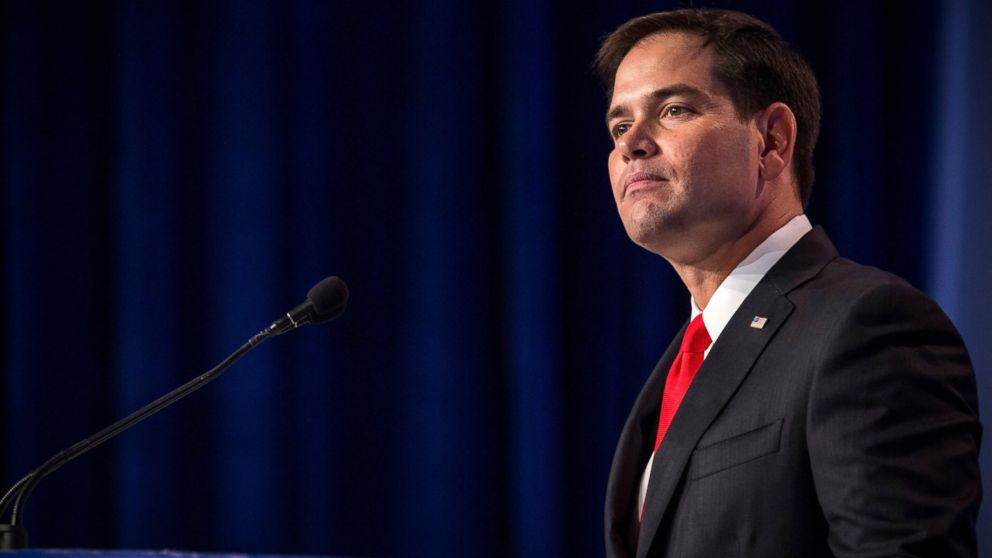Marco Rubio's Big Poverty Gamble
Rubio speech will critique the "war on poverty" 50 years after it began.

Jan. 8, 2014— -- Sen. Marco Rubio, R-Fla., is making another big bid to establish himself as of one of the leaders of his party with a speech on poverty and economic mobility today.
The remarks are a critical counterpoint to this year's Democrat strategy of pushing hard for minimum wage increases and more to address the growing sense of economic insecurity in America.
While Rubio is expected to lay out concrete proposals for addressing economic inequality, the devil will be in the details. If he tacks too far to the center, he runs the risk of alienating the already angry conservative base with proposals that are too conciliatory to the social safety net. Veer too far to the right, and Rubio's initiatives could be dismissed as insufficiently empathetic to the plight of the poor.
For clues as to how Rubio might deal with the issue of poverty and the safety net, look no further than Arthur Brooks, president of the American Enterprise Institute, a conservative think tank.
For the past five years, Brooks has been ginning up a minor revolution within the Republican Party. He pictures this: a GOP that fights explicitly for the interests of the poor.
Today, as Rubio delivers his address marking the 50th anniversary of President Lyndon B. Johnson's War on Poverty (not coincidentally in the LBJ room on Capitol Hill), he'll undoubtedly be voicing a variation on Brooks' doctrine. (The American Enterprise Institute is a host of the event, and Brooks will introduce Rubio.)
"This is the future," Brooks said in an interview. "The new right in America is going to be a force that fights for people as opposed to a force that fights against things."
Yet this week has also keenly demonstrated the challenge that Rubio, and Republicans at large, face.
For all their desire to not cede ground to Democrats on poverty, it's not clear that Republicans are quite ready to give up fighting against things that aim to help the poor.
In the past few months, Republicans have been far more outspoken about paring back or undoing such programs as food stamps, Medicaid and extending unemployment insurance.
Yet, there's a clear desire among more centrist Republicans in Washington to change the conversation to something a little more forward-looking.
This week, Rep. Paul Ryan, R-Wis., and House Majority Leader Eric Cantor will both participate in events aimed at addressing poverty issues.
And Brooks sees the tide turning.
"What I see is a turn among Republicans," Brooks said in a phone interview Tuesday. "It's led by people like Paul Ryan and Eric Cantor, both of them are all in on this fight for people -- toward this pro-people approach."
In the Senate, the unemployment insurance bill moved forward, though Rubio didn't vote for it. It may still stall in the House where leadership has indicated support for continuing the program if it is paid for with cuts.
And House Speaker John Boehner and Sen. Minority Leader Mitch McConnell have both signaled their willingness to work with Democrats to find a solution to the unemployment impasse.
Veteran Republican strategist Ron Christie said that Rubio's leadership on this issue, if he does it right, could create the political space Republicans need to move more adeptly on issues of poverty and economic mobility.
It could also help repair some of the credibility Rubio lost after a flip-flop on immigration reform wounded him badly with his base and with the political middle.
"If his speech and his articulation of a new path forward is strong, that could very well be a clarion call for Republicans to engage in a discussion that has traditionally been a strong point for Democrats and ultimately, in my view, lead to areas of bipartisan cooperation," he said.
That's a big "if."
There's no love lost between Rubio and some elements of the far right, where his support for immigration reform has made him anathema.
And it is nearly certain that more conservative members will balk at any attempts to preserve a social safety net they view as fostering dependency.




